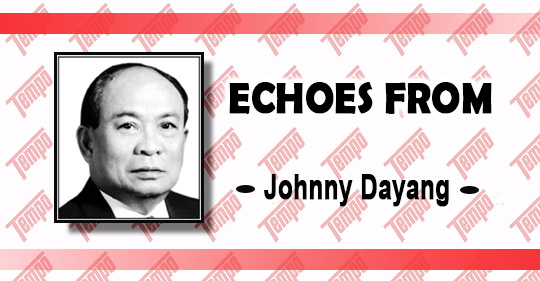BY JOHNNY DAYANG
An oft repeated but overly exploited mantra mouthed with consistency is the government’s commitment to protect human rights. It is a lip service that has added confusion to an already discombobulated declaration that the state is against any form of abuse outside the law. Candidly, this pronouncement has gained so much traction it is hard to differentiate anymore the lie from the truth, or the reality from fiction. In part, this has raised doubt whatever credibility the national leadership has gained from the positives it has made from governance.
The whole ordeal about dehumanized rights first took off on the early months of the Duterte leadership. Generals supposedly in cahoots with drug lords were shamed on national television but, sadly, cases have yet to be filed against them in court.
Unsatisfied, over the next few years, more lists of suspected drug protectors became foundation of national propaganda, drumbeating a campaign that until now has shown little promise other than the growing of deaths involved in “nanlaban” cases.
Public trust in surveys, meanwhile, does not reflect the true emotion of the people at large. When ordinary guys undergo the trauma of being detained for minor cases in the absence of bail or have failed to get a pro bono lawyer, the abusive high and mighty are always spared.
Flip-flopping in terms of human rights position was again brandished by the Palace during the recent Human Rights Summit of the Justice department when it claimed that the Philippines is among the few states to sign “many of the world’s core human rights treaties.”
On the side, following the death of the Los Baños, Laguna, mayor supposedly linked to drugs, the Palace made a quick, unabashed turn around, pronouncing the list that included the dead local chief executive did not belong to the President.
Obviously, the difference between signing an accord and practicing what it contains is lost in the way the government presents its case. Prior to the summit, the President even threatened to kill human rights activists, blaming them should the drug problem escalates.
Just what is human rights are not clear to those who are authorized to enforce the laws simply because the President has assured them of pardon if they are convicted for violating other people’s rights. This is a clear manifestation of support for options outside process and the protection of the rights of suspects.
Inside a leadership clearly garrisoned by people who once adorned stars on their shoulder boards, the concept of human rights takes on a twist that is hard to decipher and it often takes a turn that raises a question whether the government is really pro-people when simple liberties are adjusted to suit certain thrusts.



